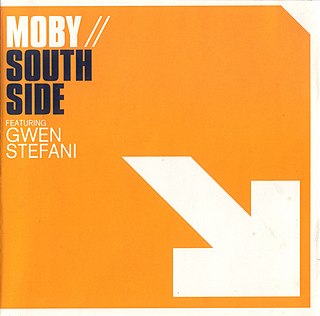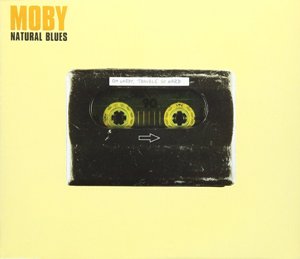
Led Zeppelin is a boxed set by English rock band Led Zeppelin. It was the first compilation of songs by the band and the selection and remastering of the tracks were supervised by Jimmy Page. Atlantic Records released it on 8 October 1990 on several formats: four compact discs, six vinyl records, or four cassette tapes. A 36-page booklet was also included with the release.

"Flying Without Wings" is a song by Irish boy band Westlife, released on 18 October 1999 as the third single from their self-titled debut studio album (1999). It is the band's fourth-best-selling single on both paid-for and combined sales in the United Kingdom as of January 2019.

Play is the fifth studio album by American electronic musician Moby. It was released on May 17, 1999, through Mute Records internationally and V2 Records in North America. Recording of the album began in mid-1997, following the release of Moby's fourth album, Animal Rights (1996), which deviated from his electronica style; Moby's goal for Play was to return to electronica, blending downtempo with blues and roots music samples. Originally intended to be his final record, the album was recorded at Moby's home studio in Manhattan.

I Like to Score is a compilation album by American electronica musician Moby. It was released on October 10, 1997 by Mute Records in the United Kingdom and Elektra Records in the United States. The album primarily consists of music recorded by Moby for use in film soundtracks.

"South Side" is a song written and recorded by American electronica musician Moby. It was released to radio on October 10, 2000, as the seventh single from his fifth studio album, Play. Initially recorded with No Doubt frontwoman Gwen Stefani, production problems forced Moby to leave Stefani's vocals off the mix of the song included on Play; Stefani's vocals were then restored for the song's single release. The drums are sampled from "What's Up Front That Counts" by the Counts.

"Porcelain" is a song by American electronic musician Moby. It was released on April 25, 2000, as the sixth single from his fifth studio album Play (1999). Written by Moby, who also performs vocals on the recording, "Porcelain" is a melancholic song with lyrics reflecting on the breakup of a relationship. It features a lush musical backing that incorporates reversed strings and various synthesized elements. While Moby initially expressed disdain over the song and its production, he was eventually talked into including it on Play.

"Son of a Gun (I Betcha Think This Song Is About You)" is a song by American singer-songwriter Janet Jackson with Carly Simon from Jackson's seventh studio album, All for You (2001). It was written and produced by Jackson, Jimmy Jam and Terry Lewis, with additional lyrics by Simon. The R&B and hip hop song is built around a sample of 1972's "You're So Vain" by Simon, who also added some new spoken parts into the song; it talks about an unidentified man who attempted to extort money from Jackson. A remix featuring Missy Elliott was released as the third and final single from the album on November 6, 2001, by Virgin Records.

"Only When I Lose Myself" is a song by English electronic music band Depeche Mode. It was made exclusively for their 1998 compilation The Singles 86>98 and released as a single on 7 September 1998. It is the first non-album studio single since "It's Called a Heart" in 1985 and is also one of the rare singles to have two limited editions.

"Babylon" is a song by British singer-songwriter David Gray. Originally released on 12 July 1999 as the second single from his fourth album, White Ladder (1998), it was re-released as the album's fourth single on 19 June 2000. Described as Gray's signature song, "Babylon" is "about a love that is lost and found again".

"The Sensual World" is a song by English singer-songwriter Kate Bush. It was the title track and first single from her album of the same name, released in September 1989. The single entered and peaked at No. 12 on the UK Single Chart.

18 B Sides + DVD is a compilation album by American electronic musician Moby. The album's first disc is a CD featuring nine B-sides from his 2002 album 18, as well as four new songs. The second disc is a DVD featuring a live concert at the Pyramid Stage at the Glastonbury Festival on June 29, 2003, various outtakes and studio demos taken from the Play and 18 studio sessions, a megamix with eleven remixes of six different songs, and music videos for five singles from 18. The DVD also contains an additional non-musical feature entitled Highlights from Moby TV, consisting of several short skits.

MobySongs 1993–1998, also known as Songs 1993–1998 or simply Mobysongs, is a compilation album by American electronica musician Moby. It features selections from his work released in North America on the Elektra label, before his breakout 1999 release, Play.

"We Are All Made of Stars" is a song by American electronica musician Moby. It was released as the first single from his sixth studio album, 18 (2002), on April 1, 2002. It reached number 11 on the UK Singles Chart and became a top-10 hit in several other European countries.

The discography of American musician Moby consists of twenty-two studio albums, one live album, eleven compilation albums, twelve remix albums, three video albums, four extended plays, eighty-nine singles, fourteen promotional singles, a hundred and forty-nine music videos, and forty-four remixes.

"Natural Blues" is a song by American electronic musician Moby. It was released on March 6, 2000, as the fifth single from his fifth studio album, Play (1999). The song is built around vocals sampled from "Trouble So Hard" by American folk singer Vera Hall (1937). "Natural Blues" was one of several songs on Play produced by Moby based on samples obtained from albums of American folk music originally compiled by field collector Alan Lomax. In the United Kingdom, "Natural Blues" peaked at number 11 on the UK Singles Chart. In Iceland, it peaked at number one.
American singer and songwriter Tweet has released three studio albums, one live album, one extended play, 13 singles, two promotional singles, and 13 music videos.

"Why Does My Heart Feel So Bad?" is a song by American electronica musician Moby. It was released on October 11, 1999, as the fourth single from his fifth studio album Play. It became a hit in several regions, including German-speaking Europe and the United Kingdom.

"Honey" is a song by American electronic musician Moby. It was released as the lead single from his fifth studio album Play on August 24, 1998. The song samples the 1960 recording "Sometimes" by American blues singer Bessie Jones. Moby first heard "Sometimes" on a box set collection of folk music compiled by Alan Lomax, and subsequently composed "Honey" around vocal samples from the Jones song.

"Bodyrock" is a song by American electronica musician Moby. It was released as the third single from his fifth studio album Play on July 12, 1999. Heavily inspired by hip hop music, the song incorporates vocal samples from "Love Rap" by Spoonie Gee and the Treacherous Three. The single peaked at number 38 on the UK Singles Chart.

"On a Clear Day (You Can See Forever)" is a song written by Burton Lane (music) and Alan Jay Lerner (lyrics) for the 1965 Broadway musical On a Clear Day You Can See Forever. It was subsequently performed by American actress and vocalist Barbra Streisand in the 1970 film adaptation of the musical.


















